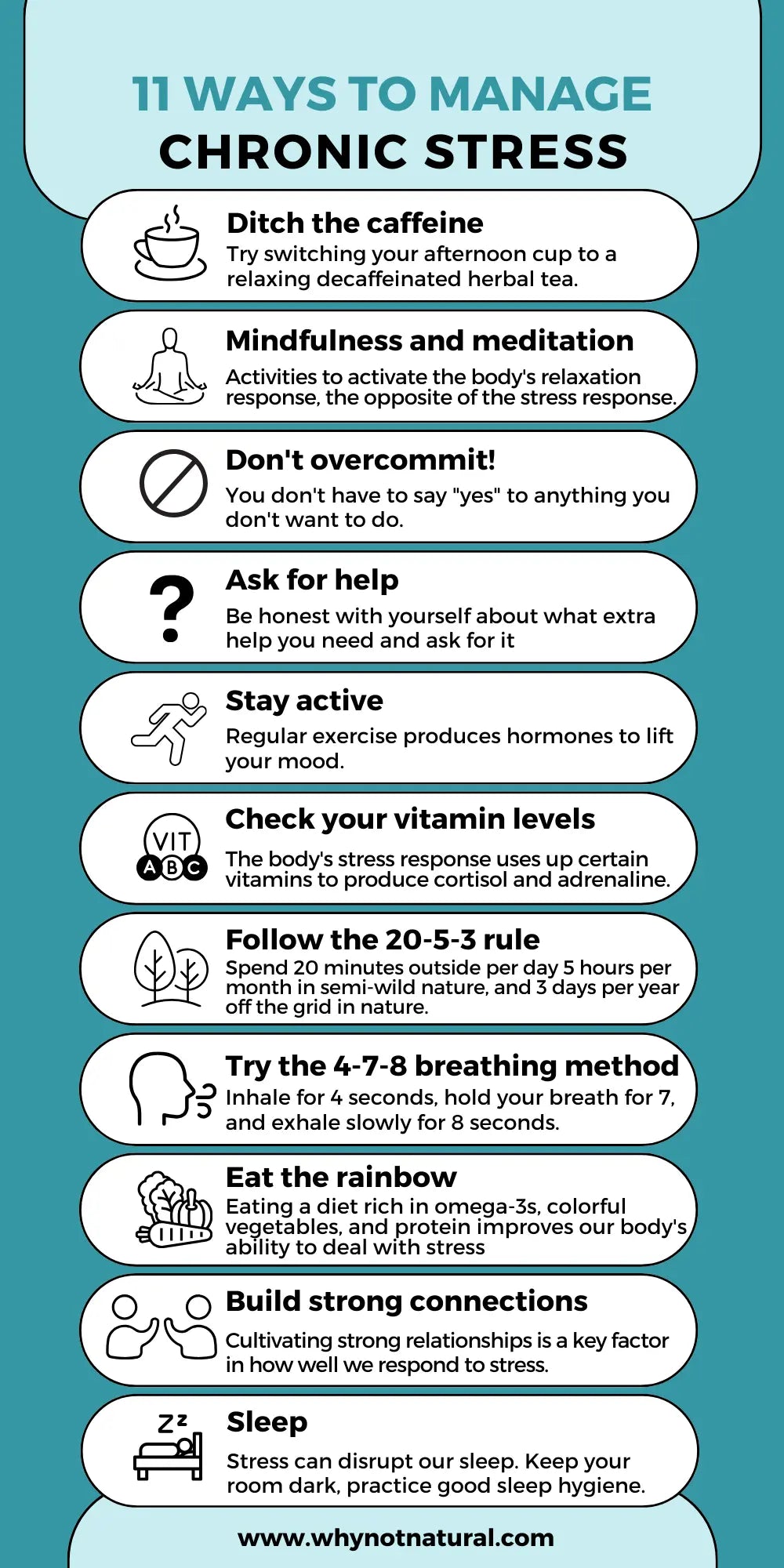

· By Kelin Marquet
11 Ways to Manage Chronic Stress
Stress happens to everyone. While it can affect multiple systems in the body, there are practical ways to support how you respond to it.
How to Handle Stress
Everyone experiences stress differently. The impact depends on factors like your support system, sense of control, and the coping mechanisms you use.
When we can’t reduce life’s stressors, here are 11 ways to manage your body’s response and support your overall well-being:
-
Ditch the caffeine
Too much caffeine may make stress feel worse. Try swapping your afternoon cup for a soothing herbal tea. -
Mindfulness & meditation
These practices help bring you into the present moment and activate a relaxation response. Apps, YouTube guides, and audiobooks can help you get started. -
Don’t overcommit
Learn to say “no” when needed and minimize extra responsibilities. -
Ask for help
Be open about your needs — whether it’s companionship, therapy, or household help. -
Stay active
Exercise supports mood and can serve as both mindfulness and a healthy distraction. -
Check your vitamin levels
Stress impacts how your body uses and absorbs nutrients. Important ones to monitor include iron, calcium, magnesium, vitamin C, zinc, and B vitamins (study).
👉 Consider supplements like Magnesium, B Complex, or Vitamin C + Zinc. -
Follow the 20-5-3 rule
Spending time in nature has been linked to improved mood and cognitive restoration (study). Plus, sunlight exposure supports vitamin D levels, which are associated with mood balance.
👉 Support your vitamin D with D3 + K2. -
Try the 4-7-8 breathing method
This simple breathing pattern can promote calmness and relaxation. -
Eat the rainbow
A nutrient-rich diet with colorful vegetables, omega-3s, and protein can help your body better cope with stress. -
Build strong connections
Spending time with supportive friends or loved ones can ease stress. -
Prioritize sleep
Good sleep hygiene supports resilience. Keep your room dark, reduce screens before bed, and practice relaxation breathing to improve rest.

Don't forget to subscribe to our newsletter to learn which supplements to take, how to combine them for maximum benefit, and other health tips to boost your energy and vitality. https://whynotnatural.com/pages/subscribe
Disclaimer:
This content is for informational purposes only and is not intended as medical advice. Always consult a qualified healthcare professional before making changes to your diet, lifestyle, or supplement routine.
Resources
(1) The Effects of Psychological and Environmental Stress on Micronutrient Concentrations in the Body: A Review of the Evidence
